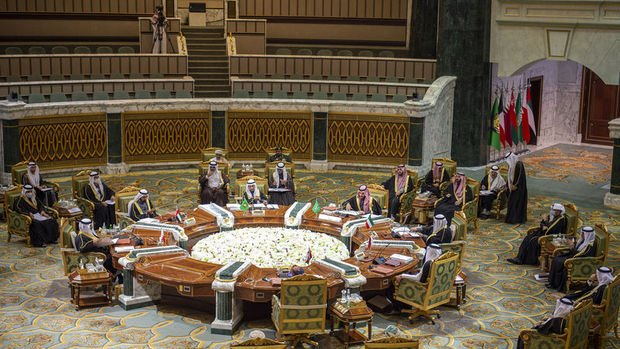Gulf Cooperation Council: We are ready to cooperate on Iran's nuclear file
At the Gulf Cooperation Council (GCC) meeting held in Riyadh, the capital of Saudi Arabia, Iran was called to fulfill its obligations arising from the nuclear agreement and to cooperate fully with the IAEA. The GCC countries emphasized that they are ready for effective cooperation with Iran regarding the nuclear agreement. It was stated that the Gulf Cooperation Council (GCC) countries are ready for effective cooperation on Iran’s “nuclear file.” A statement was made by the GCC following the foreign ministers’ meeting held in Riyadh, the capital of Saudi Arabia. The statement stated that Iran should fulfill its obligations regarding the nuclear agreement and cooperate fully with the International Atomic Energy Agency (IAEA), and emphasized that the GCC countries’ willingness to cooperate effectively and deal with Iran’s nuclear file was emphasized, emphasizing that the relevant countries should participate in all negotiations and meetings. The statement also emphasized the importance of protecting maritime security and waterways in the region, as well as countering anything that could threaten sea shipping lanes, international trade, and oil facilities, and noted that all acts of terrorism, regardless of their source, purpose, or justification, were rejected. The statement praised Saudi Arabia’s peace initiatives in cooperation with the Arab League on the Palestinian issue and its efforts to counter Israel’s violations, and condemned Israel’s repeated attacks and raids on the Al-Aqsa Mosque in occupied East Jerusalem. The statement also shared that the GCC foreign ministers discussed the armed clashes that have broken out in Sudan since April 15 and called for “the prevailing language of calm and dialogue” in the country. Nuclear deal and negotiation process with Iran An agreement was signed between Iran and the permanent members of the United Nations Security Council (UNSC) — the United States, Russia, China, the United Kingdom, France, and Germany (5+1) — in 2015 under which Tehran’s nuclear activities were regulated and monitored in exchange for the lifting of sanctions. The United States unilaterally withdrew from the 2015 nuclear deal with Iran during Donald Trump’s presidency on May 8, 2018, and re-imposed sanctions on the country. Iran, in turn, began suspending its activities in the agreement on May 8, 2019. Despite the agreement allowing uranium enrichment to 3.67 percent, Iran had begun enriching uranium to 60 percent purity during this process. The nuclear talks that began in Vienna in April 2021 after Trump and focused on reviving the nuclear deal with Iran and rejoining the US were suspended in early September 2022 due to a series of disagreements between Washington and Tehran. The steps taken by Iran since the US withdrew from the agreement, including enriching uranium far beyond what is permitted in the nuclear agreement, make a return to the nuclear agreement difficult.


